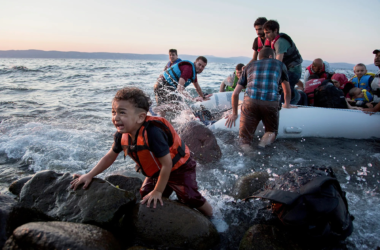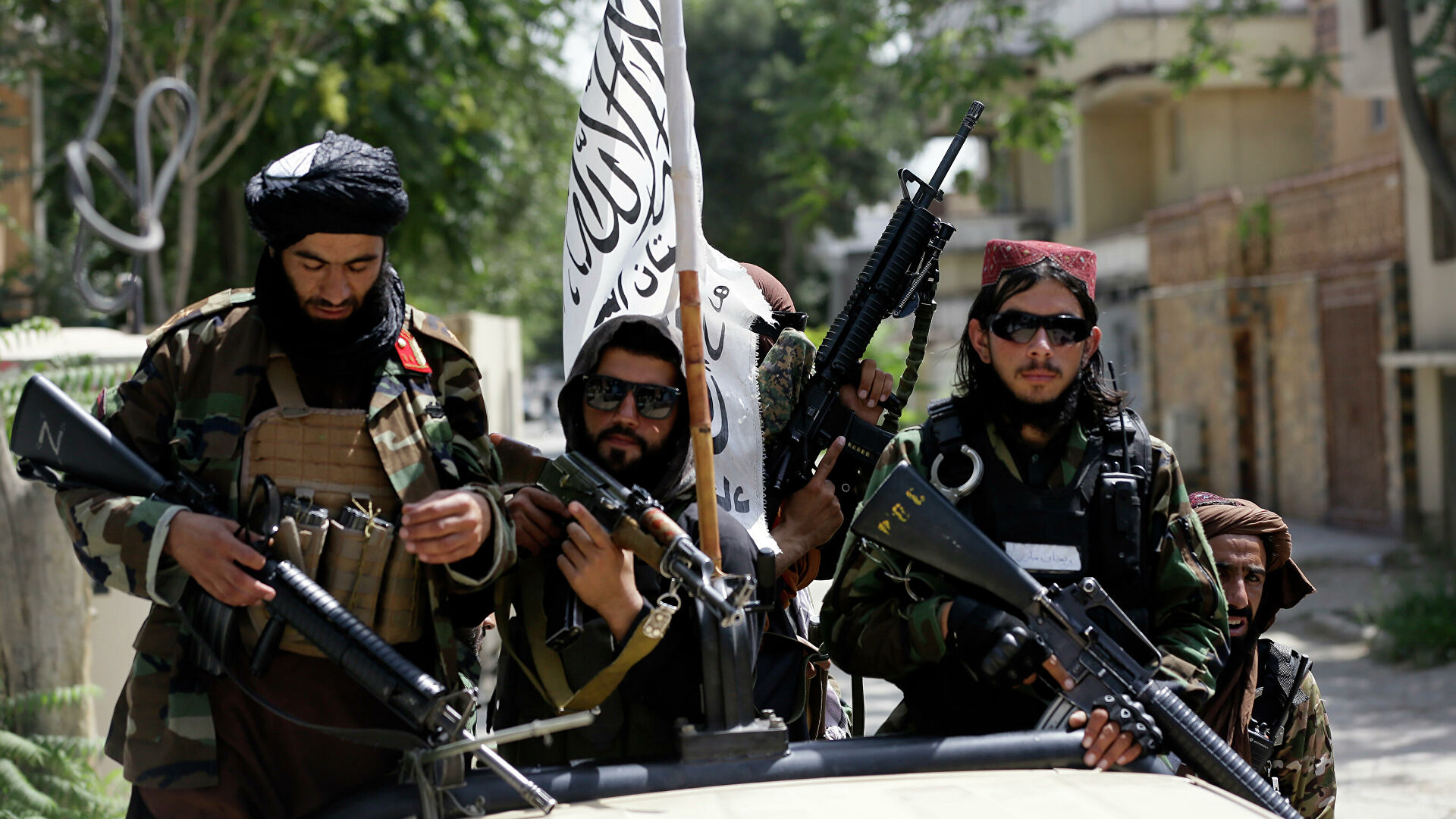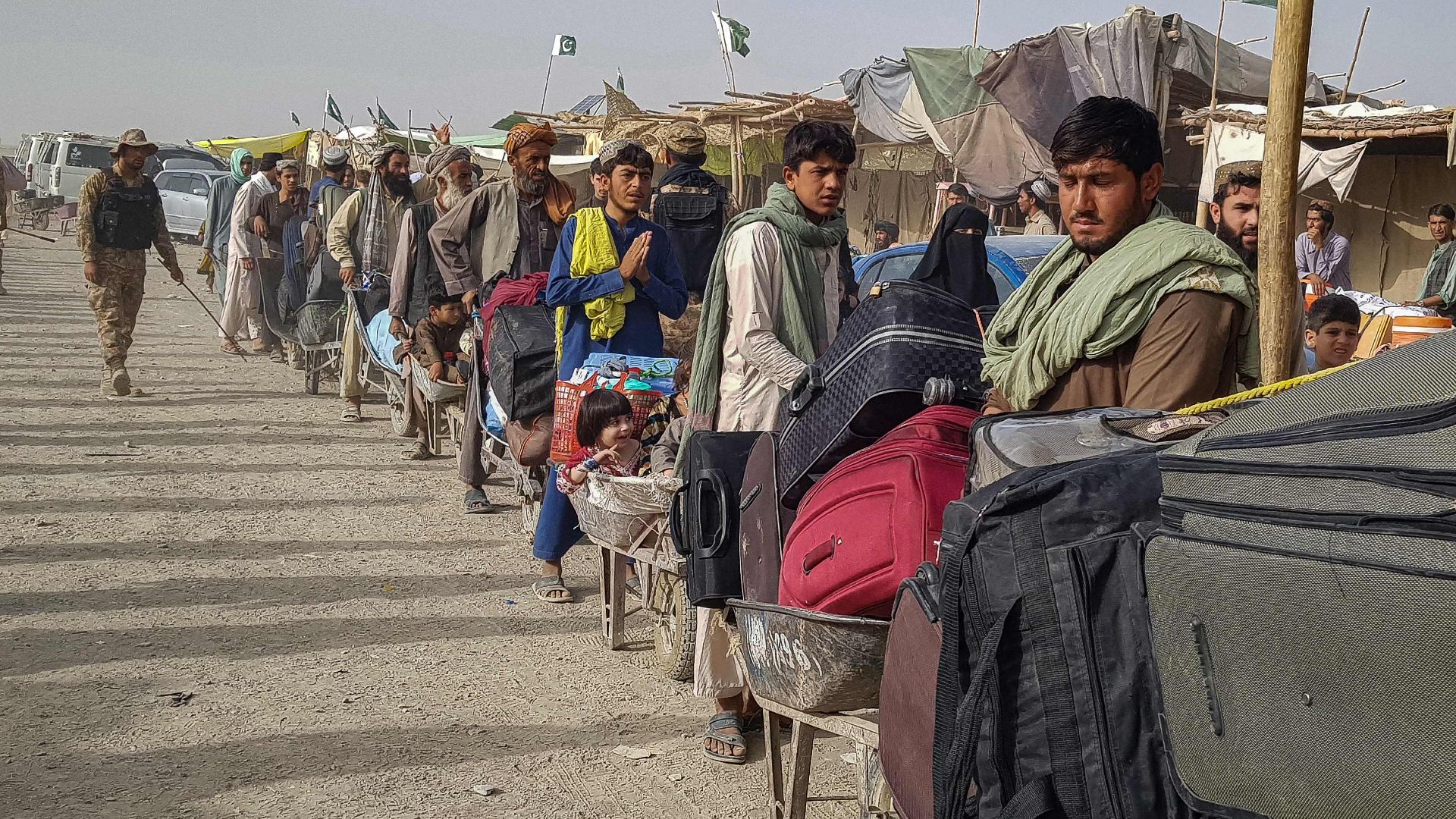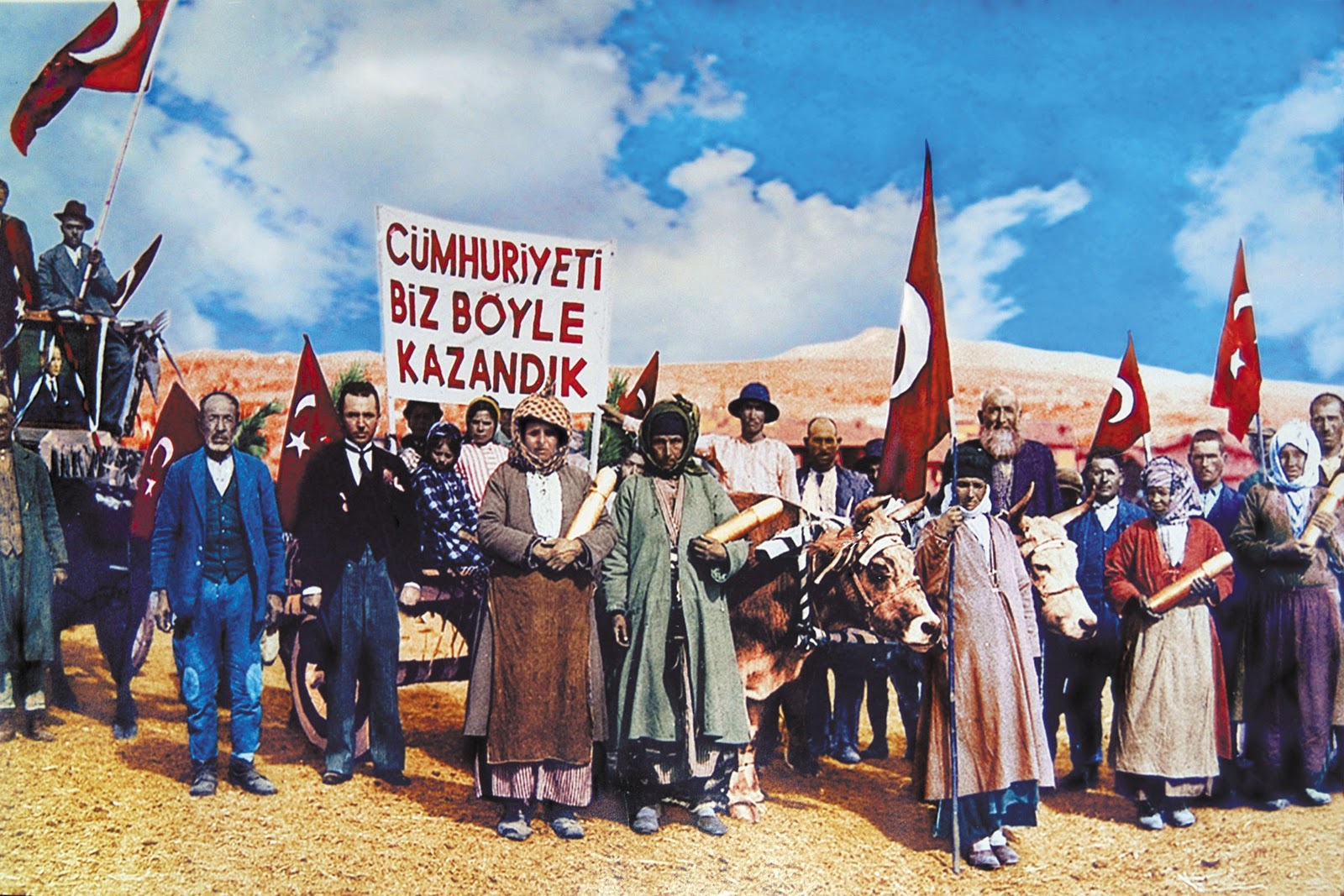Abstract
In line with the agreement signed between the USA and the Taliban in February 2020, the process of withdrawing international forces from Afghanistan began this year. While it was agreed in the agreement that the Taliban would not attack foreign forces, no provision was made regarding the actions of Afghan security forces. While continuing its negotiations with the Afghan government, the Taliban has regained control of Afghanistan 20 years later, by continuing its violent attacks since June and then taking the capital Kabul under its dominion on August 15. In the face of this rapid advance of the Taliban, tens of thousands of people left their homes and fled the country. After the neighboring countries Pakistan and Iran, Afghans began to migrate mostly to Turkey and to European countries if they could find a way. Although the exact number of people entering Turkey’s border provinces is not known, it is known that thousands of people left Afghanistan for the sake of their lives. The chaos in Afghanistan and the uncertain policies of Turkey, which is a transit country to Europe, are worrying Europe about the emergence of a new refugee crisis. In this article, the approaches, and policies of the European Union on Afghan refugees are evaluated.
Keywords: European Union (EU), Europe, Taliban, Afghanistan, Refugee Crisis, Migration, Turkey.
Introduction
The immigration problem, which has had an impact on many communities throughout history, has become one of the problems that occupy the international agenda with the effect of the changing world conditions. The concept of migration, which is defined as individuals or communities leaving their country for some reason and leaving their homes to settle in another region or country, has become a global phenomenon and is one of the issues that are difficult to reach an agreement on. Most of the people must leave their places of residence due to reasons such as war, persecution, economic difficulties, genocide, natural disasters and migrate to other countries for a more comfortable and quality life. However, these migrations lead to changes in the economic, political, social, and demographic structure of many countries in the world. In this respect, we can state that the reasons for the emergence of migration are the same as the results revealed. In other words, migration is both a cause and an effect. The issue, which has emerged with changing conditions and is on the agenda of the world, is the problem of Afghan Immigration, which has increased with the complete withdrawal of the USA from Afghanistan and the Taliban’s seizure of power. Especially in this matter, we can say that there are more of concerns of European countries.
First, in order to make the analysis clearer and more understandable, after briefly mentioning the Taliban regime, which is one of the biggest reasons for migration in Afghanistan, the approaches and policies of the European Union against this migration and what will be the steps in this regard will be evaluated.
1. Taliban Regime
Adopting the name Taliban (students), which is the plural of the word Talib (student), the organization was founded in the southern region of the country in 1994 with approximately 50 madrasah students under the leadership of Mullah Omar Ahund (Bag, 2021). The majority of Afghan society, being traditionalist, quickly gathered supporters and stated that the aim of the rising organization was to get rid of the warlords that emerged during the Soviet war and civil wars. The basic philosophy of the organization is to bring an administration based on Islam and to establish a sharia regime in Afghanistan. However, while the Islamic interpretation of the organization is a mixture of the Hanafi sect and Afghan traditions, the Taliban rejects all interpretations of Islam that are outside their own understanding and interpretation. According to analysts, Pakistan’s intelligence agency was the biggest supporter and guide in the establishment of the organization. If we talk about the practices of the Taliban, who interpret Islam according to their own understanding, these are; The entry into force of the constitutional system based on sharia, the creation of the Ministry of Emr-i bil Maruf to control the application of sharia in daily life, the prohibition of isolated women from working in all areas of life and the prohibition of girls from receiving education, the obligation to wear a burqa for women and the obligation to wear a skullcap and beard for men. , the whipping of women with visible faces, the imprisonment of men who cut their beards, the prohibition of music, the prohibition of television, the obligation of men to pray 5 times a day in the mosque, the whipping of those who do not know the prayer times, the execution of people, especially those belonging to different mujahideen groups, if they are caught.
Re-emerging on the world stage after 20 years after the American occupation and still making a name for itself, the Taliban wanted the US presence to end and all foreign forces to withdraw from the country. For this purpose, a peace agreement was signed with the US President Donald Trump administration in February 2020, and in the agreement, the organization got what it wanted (Bag, 2021). With the complete withdrawal of international forces from Afghanistan, the Taliban gathered their strength and completely captured Afghanistan on August 15, 2021. As soon as the Taliban took over Afghanistan, they implemented their rules and practices. President Ashraf Ghani fled the country. Thousands of Afghan citizens are trying to do the same for the sake of their lives (Picture-I). This situation, on the other hand, worries Europe because of the thought that it will create a large migration wave.
(Picture-1, 2021)
2. Immigration Concern in the EU
It is estimated that around 2.2 million Afghans are in neighboring countries, while the number of people trying to leave the country is increasing. Due to the ongoing conflicts and political instability, 3.5 million people were left homeless within the borders of Afghanistan (BBC News, 2021). While other countries were evacuating their own citizens from Afghanistan, Afghans were trying to take advantage of this evacuation at the cost of their lives. The fact that the situation was so dire has led to concerns that it will create another migrant crisis in Europe. Although there are still differences of opinion on the common refugee policy to be established for Afghan citizens fleeing the Taliban in the member states of the European Union (EU), all eyes are turned to the European Commission, which states that it is working on it (Parrock, 2021). Catherine Woollard, Director of Refugees and Exiles of the Council of Europe stated that there is no problem in evacuating people working in the EU and that the necessary assistance will be provided to Afghan refugees who come by their own means. In recent days, several European leaders have also expressed their concerns about immigration. In a televised speech on 16 August, French President Emmanuel Macron said that “an organized and fair international effort is needed to deal with those who have fled the Taliban”, adding that Europe alone cannot bear the consequences of the current situation.
German Chancellor Angela Merkel argued that local solutions should be found against the Afghan immigration influx and that solutions should be found in neighboring countries to Afghanistan (Karaca, 2021). The ruling Christian Democrats in Germany, on the other hand, stated that 2015 should not be repeated and that this problem cannot be solved by immigration to Germany. In 2015, Syrian refugees fleeing the war in Syria entered Greece by crossing the land border on the Maritsa River after crossing Turkey and then crossing the Balkans to reach Western Europe. The journey has become even more difficult for Afghan immigrants who are on the same journey. Turkey is building a fence on its border with Iran, which is its main route against the influx of immigration. He has completed the construction of a border fence along the land border with Turkey in Greece.
A large number of immigrants who tried to enter the Greek islands from Turkey by boats or boats were caught and taken to refugee camps. Greek Citizens Protection Minister Michalis Chrisochoidis, who visited the border fence on August 21, defended the government’s measures (Ridgwell, 2021). He stated that the Afghan Crisis will create some changes in geopolitical terms and may create a wave of immigrants, and they will not stand passively against these effects.
In Austria, which is one of the most anti-immigrant countries, Austrian Prime Minister Kurz stated that they have received more than 40,000 Afghan refugees in the last few years and they will not take any more. We can say that Austria will not compromise on its harsh policies in the event of a possible migration crisis.
In Poland, on the other hand, there is a crisis due to Afghan immigrants. Due to the increase in the number of illegal immigrants coming to the EU via Belarus, Poland decided to build a 150-kilometer wire fence wall on its border (Euronews, 2021). Polish Deputy Minister of Internal Affairs and Administration Maciej Wasik claimed that the immigrants were used by Belarusian President Aleksandr Lukashenko. Wasik also stated that Poland sees Afghan refugees as a threat and that they will not accept them. He announced that he had deployed 1000 soldiers to his borders in order to prevent the said wave of migration (Hürriyet, 2021).
Croatian Minister of Interior Davor Bozinavic stated that the EU should not face a migrant crisis as it did in 2015, regarding the eye crisis on the Afghanistan-Belarus border, and that he condemned the Belarusian administration, which used immigrants as a political pressure tool (Perspektif, 2021). Furthermore, saying that Latvia, Lithuania, and Poland were most affected by this attitude of Belarus, Bozinovic stated that the external borders of the EU should not be used for their own interests and should be protected. Bozinovic announced that he will accept 20 Afghans working in the EU institution. And he stated that the EU will work through the United Nations to help Afghan immigrants in this regard.
Janez Jansa, the EU Term President, and Slovenian Prime Minister shared her opinion on her social media account that “it is not the duty of the EU or Slovenia to help everyone who fled their homeland instead of fighting”. Considering this explanation, we can evaluate that Slovenia is not positive about helping, besides not accepting refugees.
Result
From a general perspective, we come to the conclusion that European countries and Turkey cannot afford more immigrants. For this reason, it is seen that the idea of establishing tighter and more planned cooperation between Afghanistan and Europe with countries such as Turkey in order to prevent the Afghan migrant crisis outweighs the EU Institutions. According to the statements made in countries with anti-immigrant governments, it is understood that they will follow tougher policies unless a solution is found on this issue. We can also state that the attitudes of these countries are not moderate like the EU. However, the number of immigrants is increasing day by day and a solution has not been reached yet on the issue of creating a common migration policy of European countries. And the debate on this issue still continues.
Prepared by Sudenur Yıldız for The FEAS Journal.
References
Bag, M. (2021, Ağustos 21). Taliban örgütü nedir? Nasıl ortaya çıktı? Amacı nedir? Arkasında kimler var? Ağustos 27, 2021 tarihinde euronews: https://tr.euronews.com/2021/08/14/taliban-orgutu-nedir-nasil-ortaya-cikti-amaci-nedir-arkasinda-kimler-var adresinden alındı
BBC News. (2021, Ağustos 23). Taliban’dan kaçan Afgan sığınmacılar nereye gidecek? Ağustos 28, 2021 tarihinde BBC News: https://www.bbc.com/turkce/haberler-dunya-58298969 adresinden alındı
Euronews. (2021, Ağustos 24). Polonya, göçmen akınına karşı Belarus sınırına 150 km’lik tel örgüden duvar örüyor. Ağustos 28, 2021 tarihinde Euronews: https://tr.euronews.com/2021/08/24/polonya-gocmen-ak-n-na-kars-belarus-s-n-r-na-150-km-lik-tel-orguden-duvar-oruyor adresinden alındı
Hürriyet. (2021, Ağustos 20). Avrupa’da yer yerinden oynadı! Belarus’un göçmen oyunu kameralara yakalandı. Ağustos 29, 2021 tarihinde Hürriyet: https://www.hurriyet.com.tr/dunya/son-dakika-avrupada-yer-yerinden-oynadi-belarusun-gocmen-oyunu-kameralara-yakalandi-41877384 adresinden alındı
Karaca, K. (2021, Ağustos 19). Avrupa Birliği’nde Afgan Göçmen Paniği. Ağustos 29, 2021 tarihinde DW: https://www.dw.com/tr/avrupa-birli%C4%9Finde-afgan-g%C3%B6%C3%A7men-pani%C4%9Fi/a-58908364 adresinden alındı
Parrock, J. (2021, Ağustos 24). Avrupa Birliği, Afgan mülteci politikasına nasıl karar verecek? Ağustos 28, 2021 tarihinde Euronews: https://tr.euronews.com/2021/08/24/avrupa-birligi-afgan-multeci-politikas-na-nas-l-karar-verecek adresinden alındı
Perspektif. (2021, Ağustos 20). Avrupa Birliği Gündeminde “Göçmen Krizi” ve Afgan Mülteciler. Ağustos 28, 2021 tarihinde Perspektif: https://perspektif.eu/2021/08/20/avrupa-birligi-gundeminde-gocmen-krizi-ve-afgan-multeciler/ adresinden alındı
Picture-1, T. (2021). Afganistan’dan kaçmaya çalışan Afganlar. T24.
Ridgwell, H. (2021, August 23). Will Afghanistan Create Another Migrant Crisis for Europe? Ağustos 28, 2021 tarihinde Voanews: https://www.voanews.com/south-central-asia/will-afghanistan-create-another-migrant-crisis-europe adresinden alındı












